It may take an extraordinary effort this semester for MTSU students to top last fall’s record tutoring usage, but this vital academic support to students remains a popular service.
The Office of Student Success offers free tutoring — all virtually because of COVID-19 during the past three semesters — in more than 200 courses, helping students gain a greater understanding in their courses and be more successful.
Tutors are available in the areas of biology, history, computer information systems, physics, math, economics, recording industry, study skills/learning strategies and many more.
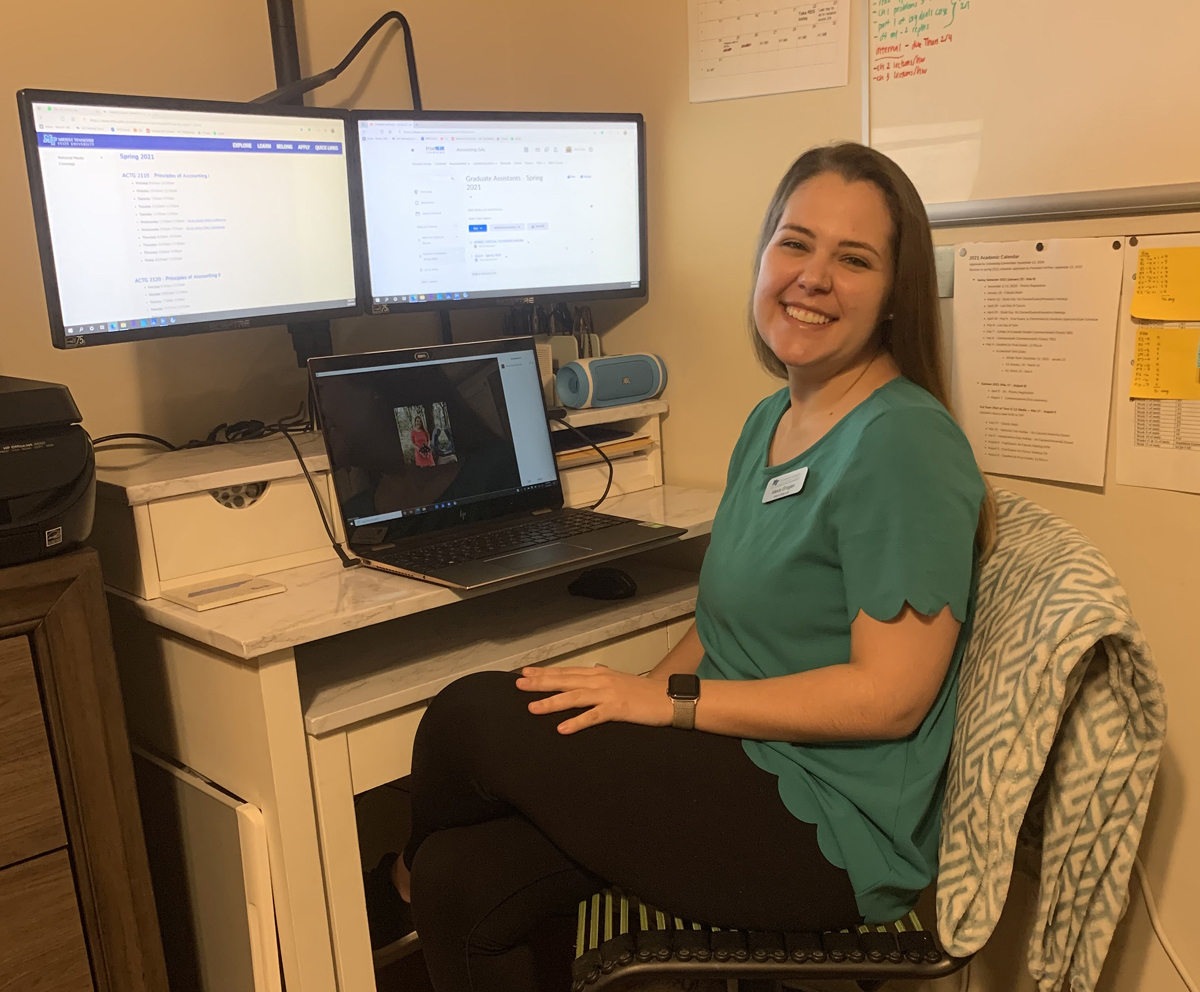
MTSU graduate student and tutor Alexia Grogan of Smyrna, Tenn., awaits a spring semester tutoring session in accounting. Grogan expects to graduate in August with her Master of Accounting degree, with an assurance specialization. She earned her bachelor’s in accounting in May 2020. (Submitted photo by Delanie McDonald)
“Tutoring is a great support to help our students flourish, and we experienced huge success and growth during the fall 2020 semester,” said Cornelia Wills, director of Student Success. To learn more, go here.
Wills entered this semester “super excited” on the heels of the record 13,421 tutoring sessions during the fall — a 67% increase from fall 2019 — and broke the fall 2017 previous record of 11,040 sessions. “This represents a huge increase,” she said.
Spring numbers playing catch-up to fall
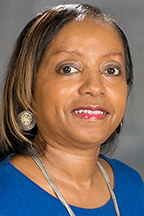
Dr. Cornelia Wills
Nearly 100% of students seeking tutoring passed the course, with 70% making A’s and B’s, and one-third making an A. Student Success data concluded higher retention rates for those choosing to be tutored.
“Freshmen and sophomore students who went for tutoring were retained 17% higher than those not going for tutoring,” Wills said. “My advice: Come early and often for tutoring.”
As of Feb. 28, tutoring sessions were one-fourth of the fall usage, with 3,309 students utilizing the free assistance.
“Spring tutoring usage is typically lower than fall semester, but current numbers are promising,” Wills said, adding that physics and astronomy and information systems and analytics have reached one-half of their fall numbers.
“Compared to spring 2020, we have already surpassed where we were this time last year,” she said. There were 2,585 sessions before COVID. Another 2,374 remote sessions after spring break made it 4,959 altogether.
Major campus tutor users
Departments with the highest demand for tutoring:
• Media Arts (2,651 sessions)
• University Studies (2,292)
• Theatre and Dance (2,030)
• Computer Science (1,329)
Six College of Basic and Applied Sciences departments saw their students request 4,360 sessions. College of Media and Entertainment students obtained 2,950 sessions.
Twenty-three departments have budgeted more than $250,000 to pay tutors this year. University Studies leads all — paying tutors more than $32,000.
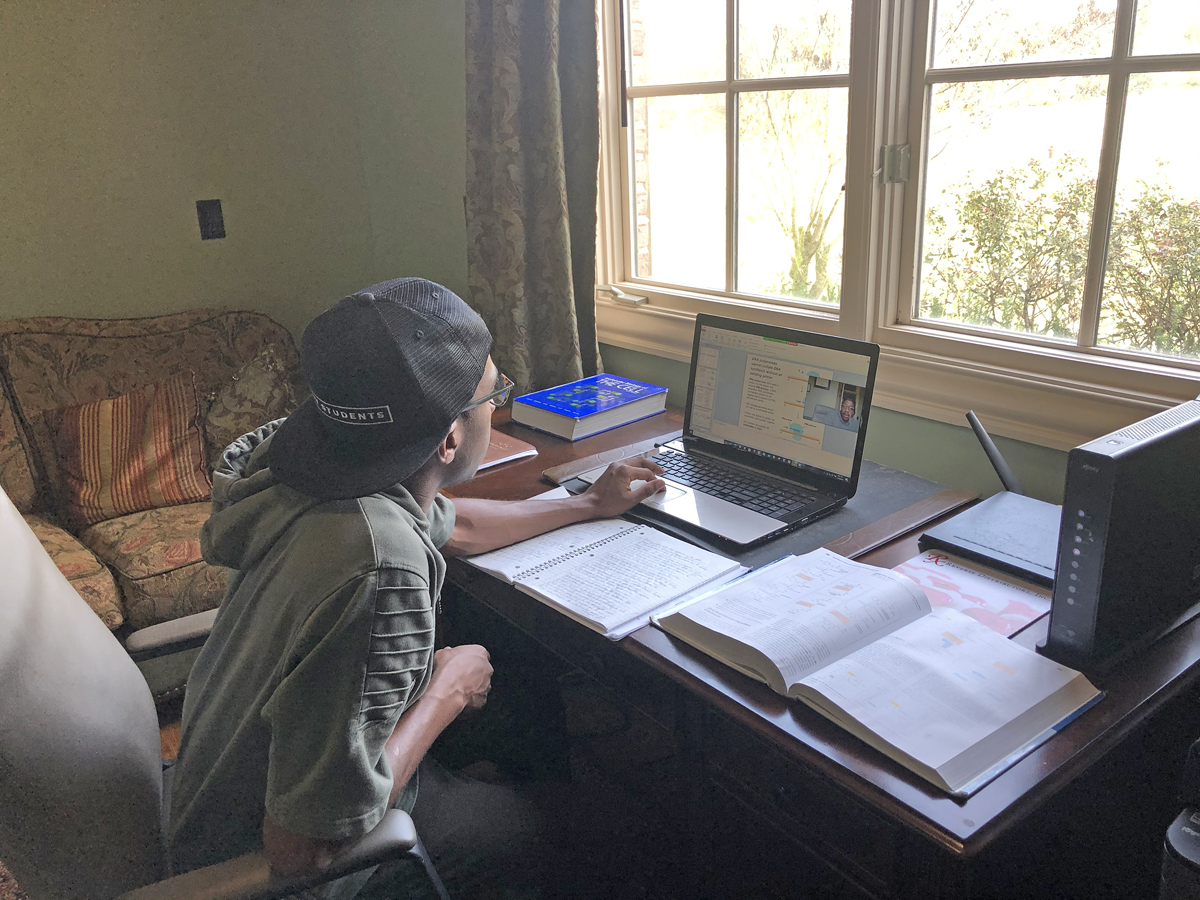
MTSU senior psychology major Chuka Onuh of Franklin, Tenn., provides assistance to chemistry students through the Office of Student Success’s free tutoring program. He is a also pursuing a minor in chemistry and expects to graduate in May. (Submitted photo by Chuka Onuh)
A tale of two tutors
Chemistry tutor Chuka Onuh said their “goal is to meet you where you are at. Our goal is not to judge, not to cast aspersion, but rather to encourage and help you be the best person and student that you can be.”
Onuh, a senior from Franklin, Tennessee, and originally from New Orleans, Louisiana, said he shares with students their goal as a tutor is “not only to teach you content, but to teach you to be better studiers … and make sure they are confident in knowing the information … and we’re always here to help.”
Onuh, a psychology major pursuing a minor in chemistry, calls tutoring “such a rich experience.” From receiving tutoring for a genetics course, “the tutor has become one of my best friends. … What the tutors taught me is there is a passion about teaching and a passion about learning.”
He promotes “utilizing the resources that are given to you” with fellow students. “It breaks my heart when a student shows up near the end of the semester — at mid-terms or final exams — and says, ‘Oh, you guys offer tutoring?’”
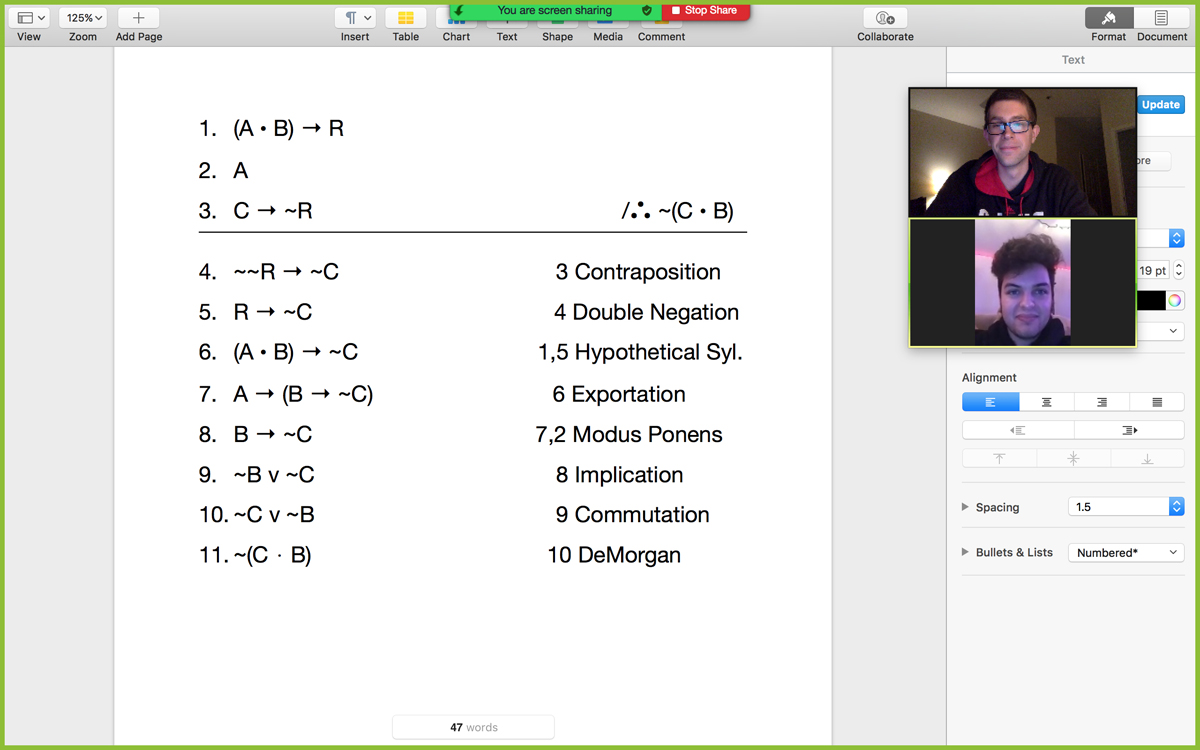
MTSU senior philosophy major Andy Madoff, top image, of Lisle, Ill., provides assistance to Ethan Forrest and other intro to philosophy and elementary logic students through the Office of Student Success’s free tutoring program. Madoff is an Honors College transfer student, who is pursuing minors in psychology and University Honors. He plans to graduate in May. Forrest is a physics major and pursuing a minor in philosophy. (Submitted photo by Andy Modaff)
Andy Modaff, 25, a senior and second-year Honors College transfer student from Lisle, Illinois, is available to tutor students in intro to philosophy and elementary logic.
“Philosophy is more than an academic discipline for me; it is a deep passion,” said Modaff, who is a philosophy major pursuing minors in psychology and University Honors. “As a tutor, I get immense satisfaction when a similar passion is sparked in other students. Witnessing that moment when a student works through a difficult philosophical concept and ‘gets it’ is my motivation.”
Modaff, who will graduate in May with honors (4.0 GPA), also “gets” why tutoring was popular in the fall.
“No doubt, pandemic conditions played a pivotal role in pushing students to the tutoring center,” he said. “… These past few terms have been (some) students’ first experiences with online and hybrid courses. Anxieties are high in general. … Students are just more willing to seek out extra help to keep up. It’s also a matter of ease-of-access. You can hop into a virtual tutoring session from anywhere.”
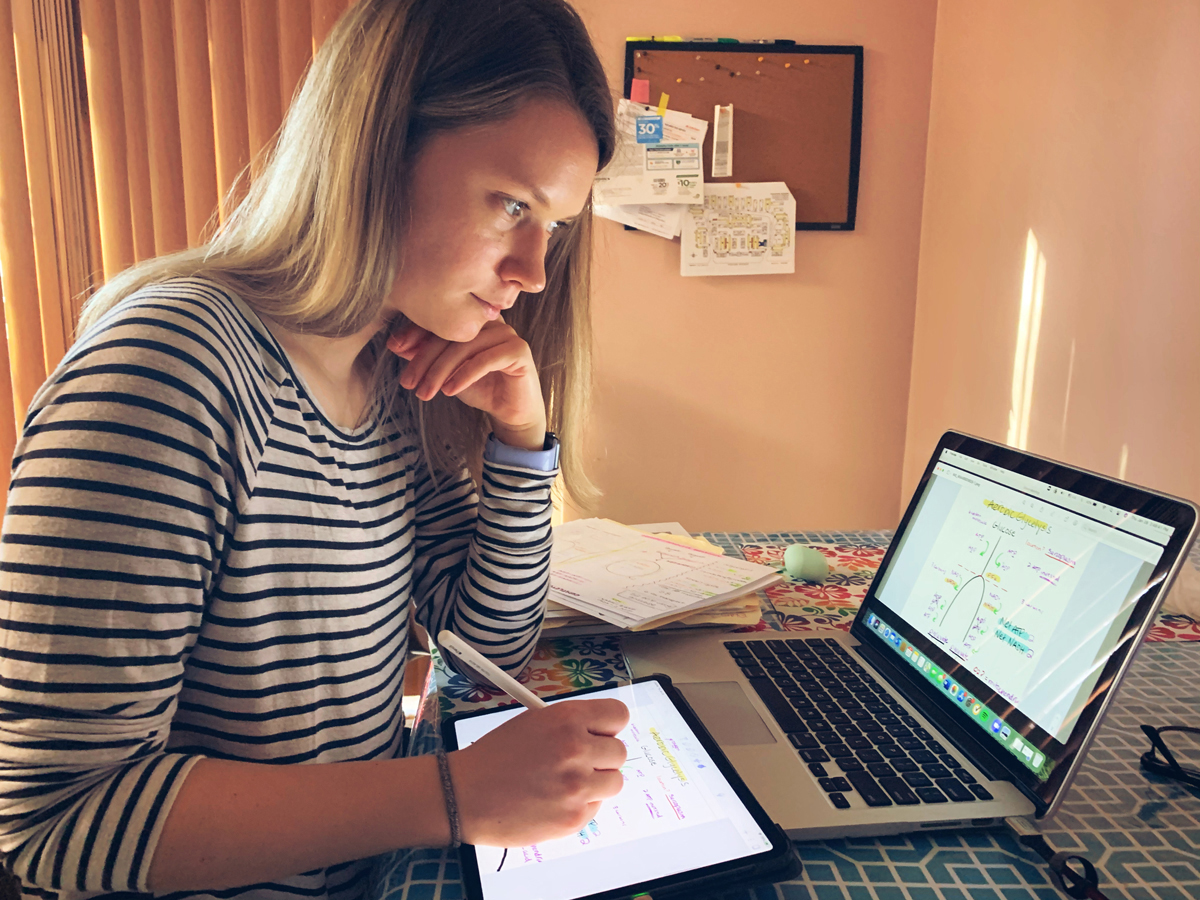
MTSU senior exercise major and supplemental instructor Yuliya Ablaeva of Memphis, Tenn., provides a peer-led session — group study and discussion time to help students develop a greater understanding of challenging content, refine study skills and better integrate course material. Ablaeva, who will graduate in May, is in her third semester as a supplemental instructor in exercise physiology. (Submitted photo by Theresa Signore)
Study skills tutoring/supplemental instruction
The Office of Student Success initiated study skills tutoring in fall 2016 “and continues to help develop the foundations to be a successful student,” Wills said.
In these sessions, “emphasis is placed on when and where to study, time management, notetaking, how to prepare for tests and memory skills,” she added. “Data shows students attending study skills tutoring make better grades, persist and are retained at a higher percentage.”
In fall 2020, a prescribed class was forced to go to three study skills tutoring sessions. Seven of 16 students made the Dean’s List, two of them with a 4.0 GPA. Wills said “these amazing results have consistently been repeated in many prior semesters.”
Additionally, supplemental instruction increases student success. It is a peer-assisted, group study and discussion method using scheduled, informal sessions to help students develop a greater understanding of challenging content, refine study skills and better integrate course material into their work and lives. On-ground and remote versions will be available this fall.
The Office of Student Success is located in Peck Hall Room 142. For more information, call 615-494-8650.
—Randy Weiler (Randy.Weiler@mtsu.edu)
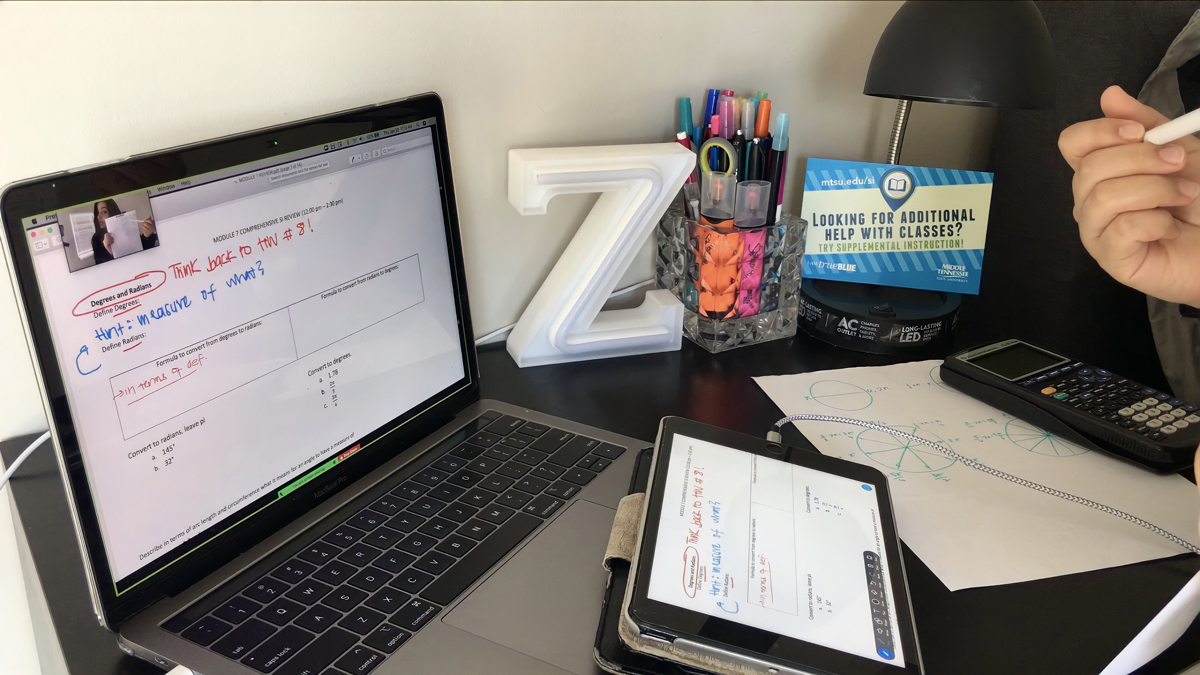
MTSU junior computer science major Zernab Saeed of Murfreesboro assists new math supplemental instructors, helping guide them with their new classes that involve group study and discussion to help students develop a greater understanding of challenging content, refine study skills and better integrate precalculus course material. Saeed has been a supplemental instructor and peer mentor for two years. She is pursuing a minor in Honors from the Honors College. (Submitted photo by Zernab Saeed)

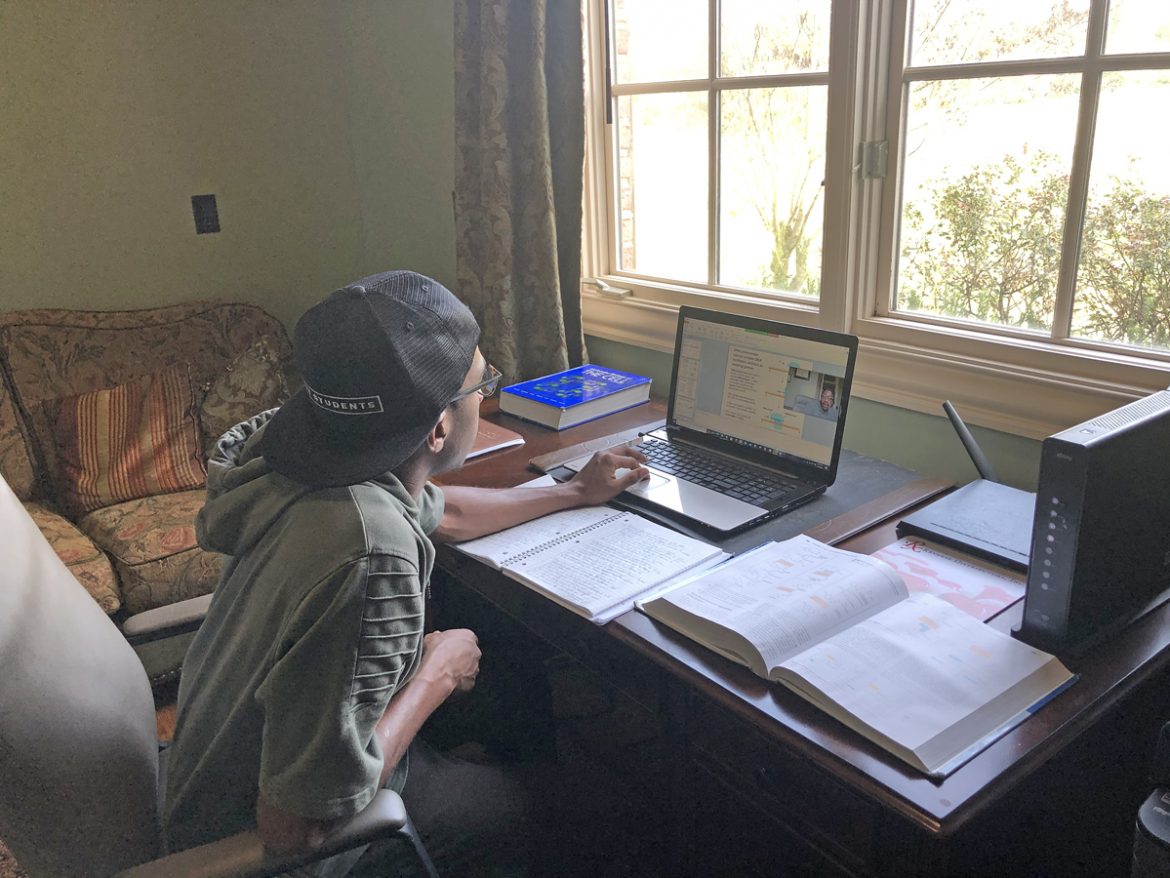
COMMENTS ARE OFF THIS POST